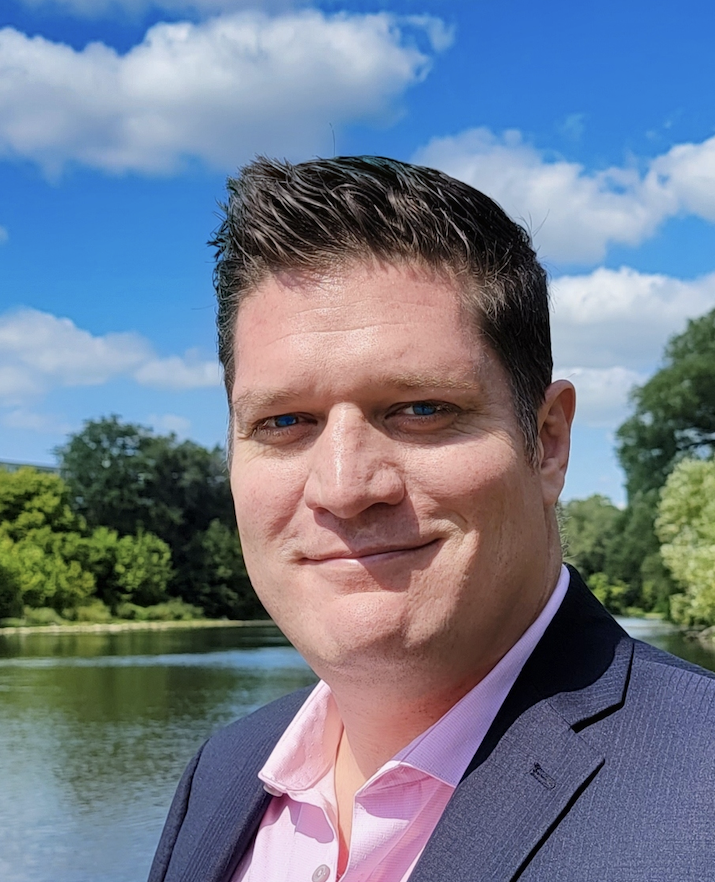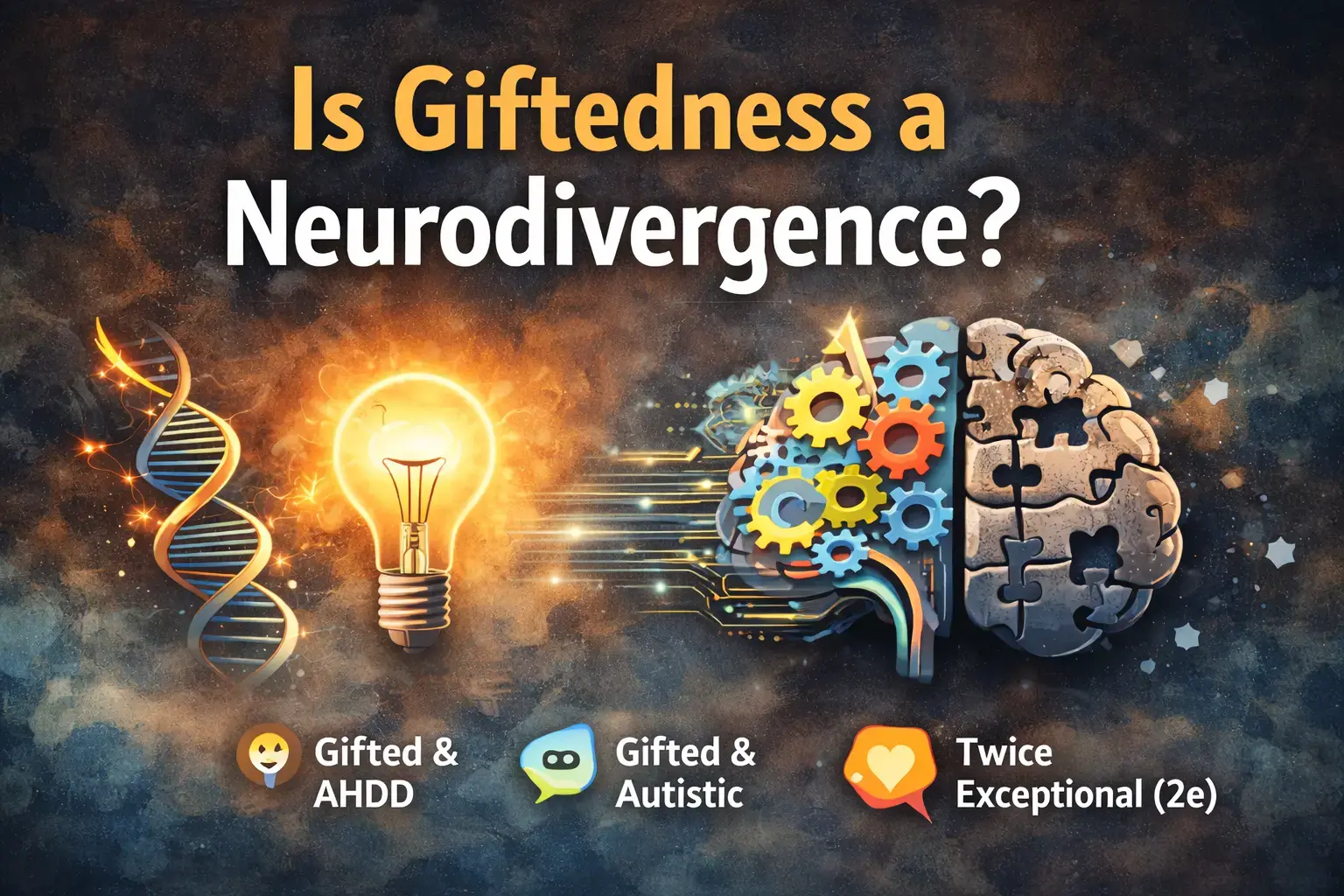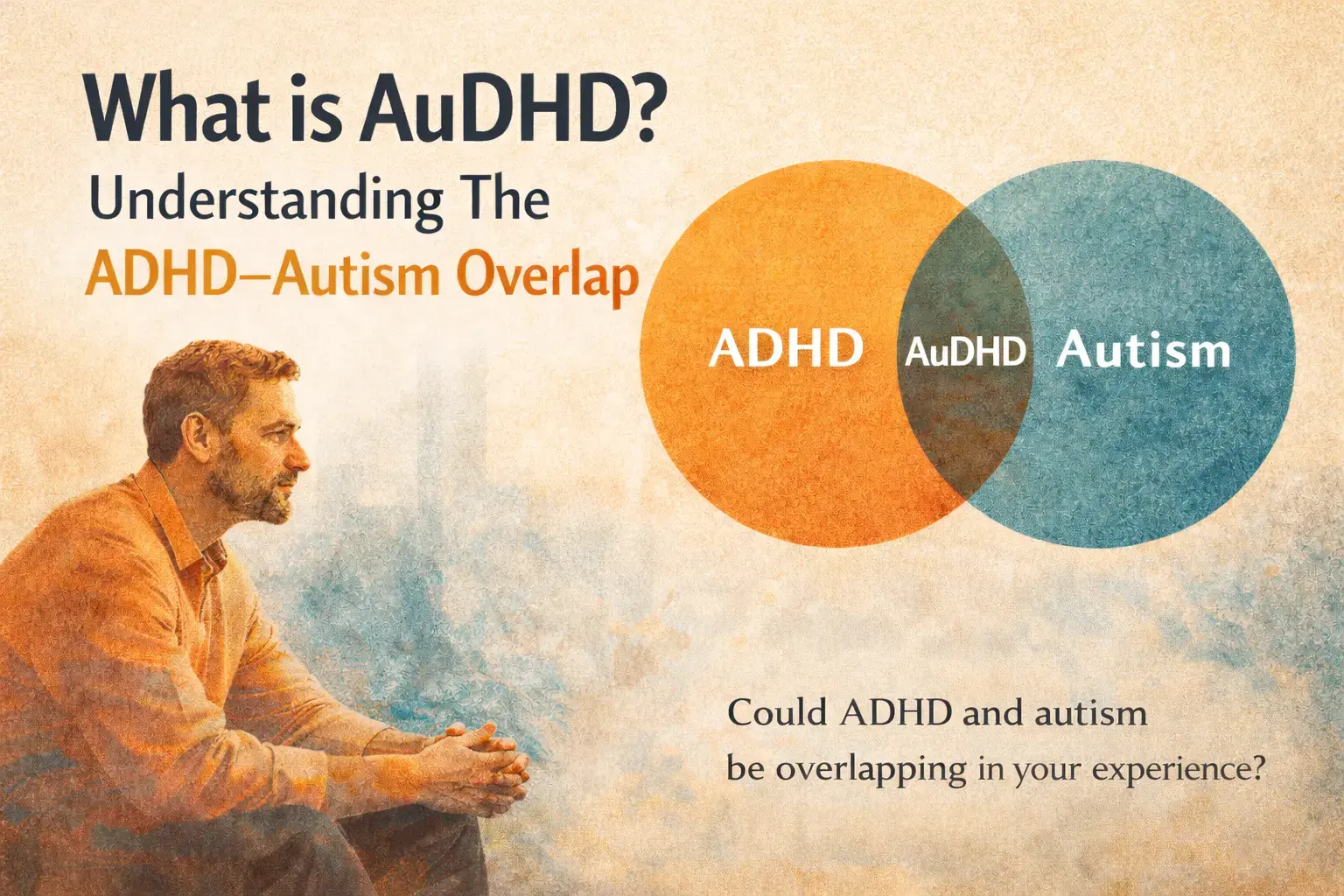Boundaries for Neurodivergent Self-Care and Well-Being
“Boundaries aren’t about keeping people out; they’re about taking care of yourself.” Melissa Urban

Why Boundaries Matter
I used to believe that being a “good friend,” a “reliable employee,” or a “caring family member” meant saying yes to everything. I took pride in being available, adaptable, and accommodating. Yet, over time, an unsettling pattern emerged: the more I said yes to others, the less energy I had for myself. My body felt depleted, my mind was constantly overstimulated, and resentment began to replace what used to be genuine generosity.
As a neurodivergent individual living with traits that are impacted by my environment, I didn’t realize how much I was stretching beyond my capacity just to maintain social harmony. The pressure to blend into neurotypical social norms, staying “easygoing” and avoiding labels like “difficult” or “distant”, left me completely drained. But I soon discovered that setting boundaries isn’t about shutting people out; it’s about making space for yourself. It’s about recognizing that your well-being is equally important.
For many neurodivergent individuals (ADHD, Autism, AuDHD), boundaries aren’t just beneficial; they’re a necessity. They help us manage sensory overload, energy depletion, and emotional burnout in a world that can often be overwhelming. When we set boundaries, we’re not creating distance; we’re creating sustainability.
What beliefs or fears prevent you from setting boundaries (e.g., “good people always say yes”)? How can you reframe those beliefs?
You may also appreciate the workplace perspective shared in Setting Boundaries in the Workplace.
Boundaries: A Tool for Neurodivergent Self-Care
Boundaries are sometimes misunderstood as walls that block out relationships. In reality, healthy boundaries function more like filters that let in what nurtures you and keep out what drains you. Whether you need to limit social engagements per week or say “no” to extra commitments at work, a personal boundary is a declaration that your well-being matters as much as anyone else’s. Limits that are affirming could look like:
- Self-boundaries might look like acts of self-respect that ensure you don’t deplete yourself to meet external demands.
- Time boundaries might look like limiting overcommitment, social events, and volunteer hours.
- Energy boundaries might look like guards against energy depletion by recognizing when to say “no” or take a break.
- Emotional boundaries might look like choosing how much emotional labour you can handle without feeling overwhelmed.
By setting these healthy boundaries, you protect your mental health and create a foundation for resilience.
Which social settings or activities cause the most mental strain? How can you establish a self-boundary around these triggers?
A Journey to Self-Preservation
Not long ago, I found myself continuously agreeing to back-to-back social events, ignoring the physical and emotional exhaustion that followed. I clung to the belief that I “should” be able to handle it all. (Related: The Tyranny of the Shoulds). Eventually, relentless fatigue and overstimulation forced me to confront this assumption. My fear of disappointing others or appearing unreliable was powerful, but I made a small yet profound shift: I began to decline a few invitations.
To my surprise, this did not isolate me from the people I cared about. Instead, it gave me the mental space to be more present and authentic when I did choose to engage. That simple act of saying “no” taught me that self-boundaries don’t create distance; they empower you to save your energy for what truly matters.
The Challenges of Setting Boundaries as a Neurodivergent Person
“Boundaries aren’t about isolation; they’re about connection—on your terms.”
Melissa Urban
1. Difficulty Identifying Personal Needs
- Neurodivergence can blur the line between genuine desires and external pressures.
- You may prioritize others’ comfort, ignoring your own cues of fatigue or sensory overload.
- Recognizing that it’s okay—even necessary—to say “no” can feel like a major leap if you’re used to people-pleasing.
2. Familial Expectations and Internalized Beliefs
- Some families discourage autonomy, making it feel “wrong” or “selfish” to protect your energy or time.
- You might fear conflict or guilt when setting limits on family visits or gatherings.
- Even small boundary-setting steps, such as scheduling regular downtime, can chip away at these ingrained beliefs.
3. People-Pleasing and Fear of Rejection
- Many neurodivergent individuals become adept at people-pleasing to avoid social conflict or misunderstandings.
- Constantly saying “yes” paves the way for burnout and brewing resentment.
- Learning to say “no” with kindness—both toward yourself and others—ultimately fosters stronger, more genuine connections.
Saying no to what drains you means saying yes to your own well-being.
“When we fail to set boundaries and hold people accountable, we feel used and mistreated.” – Brené Brown
From Barriers to Doors: Rethinking What Boundaries Mean
Boundaries can appear like rigid walls, but in truth, they resemble adjustable doors. You choose what to let in and what to keep out. For instance, if you limit your weekly social engagements, you’re not shutting people out; you’re ensuring that you don’t exhaust your “social battery”. When approached with mindful intention, boundaries have the power to cultivate healthier relationships and a profound sense of personal resilience.
Types of Boundaries to Consider
1. Emotional Boundaries
- Decide whose emotions you will carry and how you respond to others’ emotional needs.
- Shield your mental space by recognizing when someone’s emotional demands exceed your capacity.
- Limit overcommitment, and be honest about how many events, tasks, or volunteer hours you can manage without depleting yourself.
- Use calendars or digital tools to mark free time, rest days, and more. Rest is doing something.
- Respect your body’s limits, especially regarding sensory overload.
- Avoid highly stimulating environments if they overwhelm you, or plan for breaks in between.
- Guard your thoughts and core values against external pressures or invalidation.
- Maintain clarity on your own beliefs, even when facing criticism.
- Stay attuned to your energy levels.
- Grant yourself permission to say “no,” rest, or step away the moment you feel overwhelmed.
“Healthy boundaries are the foundation of self-care.” – Nedra Glover Tawwab
The Benefits of Healthy Boundaries
1. Preserving Time and Energy
- Instead of spreading yourself thin across countless obligations, you selectively allocate your resources to what genuinely matters.
- This targeted approach helps prevent burnout and emotional exhaustion.
2. Releasing Responsibility for Others’ Reactions
- Boundaries remind you that others’ responses to your “no” or your limits are their responsibility.
- While it’s natural to empathize with disappointment, respecting your well-being remains the priority.
3. Fostering Autonomy and Self-Trust
- Each time you honour your limits, you affirm your self-worth.
- Over time, this builds a trusting relationship with yourself—a cornerstone for neurodivergent mental health.
How do you balance your responsibilities to others with your responsibilities to yourself?
For connection-based boundaries, you may resonate with Navigating Neurodivergent Relationships.
Journaling Prompt
Reflect on a recent situation where you felt overwhelmed or drained after pushing yourself too far. How might setting a boundary, like reducing social engagements or limiting overtime at work, have changed the outcome? What is one small step you can take this week to protect your energy?
Embracing the Growth in Saying “No”
Learning to set boundaries can be uncomfortable, especially at first. You may grapple with guilt, apprehension, or the fear of missing out. Yet, with each boundary you set, you reclaim a piece of your authentic self. You reserve your energy for what genuinely matters in your life—be it nurturing friendships that uplift you or dedicating time to a personal passion project. Gradually, you’ll discover that saying “no” to what depletes you becomes a catalyst for deeper connections and renewed self-confidence.
For a long time, I viewed boundary-setting as an admission of weakness—like I was failing if I couldn’t handle endless demands. It took multiple bouts of burnout before I realized that establishing boundaries actually bolstered my sense of self and protected my energy. When I finally said “no” without guilt, I discovered a new level of emotional calm and clarity. The biggest surprise? My relationships began to feel more genuine because people were connecting with the real me, not the exhausted version of myself struggling to keep up appearances. This journey reaffirmed that boundaries aren’t just about self-preservation; they’re also about preserving the quality of our interactions with the people who matter most.
What small boundary could you implement this week, and how will you measure its impact on your well-being?
Moving Forward: Cultivating Boundaries for Authentic Living
By embracing your boundaries, whether it’s limiting social activities, scheduling regular downtime, or declining new obligations, you honour your right to a balanced life. These self-care acts aren’t about pushing people away; they’re about ensuring you have the energy and emotional bandwidth to show up fully for the people and experiences you cherish.
If you need help navigating this process, consider consulting a mental health professional. Whether you’re neurodivergent or simply seeking more balance, boundary-setting can be transformative in building a life where you feel more grounded, more yourself, and more sustainable in your commitments.
“Daring to set boundaries is about having the courage to love ourselves, even when we risk disappointing others.”
Brené Brown
Boundaries can be transformative, yet learning to set and maintain them takes patience and courage. If you’ve resonated with these insights, consider exploring resources or engaging in supportive communities that validate your experiences with boundaries and neurodivergence. By prioritizing self-care and embracing healthy limits, you pave the way for more authentic connections and a life that aligns with your well-being.
If you’d like to learn more about my story and values around boundaries, self-respect, and energy protection, you can visit my Services page, for more about services that support late-diagnosed, gifted, AuDHD, and autistic adults
If you’re working to develop healthier boundaries, you’re welcome to connect through my contact page to explore supportive strategies.
Or stay on the blog and learn more about ADHD, Autism, and Giftedness.
FAQ: Common Questions About Setting Boundaries
Q1: What if someone reacts negatively to my boundary?
Answer: Their discomfort doesn’t invalidate your need for self-care. Over time, people who value your well-being will respect your limits.
Q2: How do I avoid feeling guilty?
Answer: Guilt often dissipates as you witness how boundaries enhance your energy and authenticity. Remind yourself that these limits ultimately foster healthier relationships.
Q3: Can boundaries evolve over time?
Answer: Absolutely. As your needs and circumstances shift, your boundaries can (and should) be reassessed and adapted.
Q4: What if I’m unsure of my boundaries?
Answer: Start small. Notice when you feel anxious or resentful—these emotions often signal a need for a boundary.
Q5: Isn’t it selfish to say “no” to someone who needs help?
Answer: True help is given most effectively when you have the capacity to provide. Overextending yourself leads to burnout, which ultimately benefits no one.
You may also appreciate Workplace Boundaries for Neurodivergent Adults and Why Neurodivergent Men Struggle to Recognize Needs.
.png?width=500&height=286&name=Image%203%20(1).png)
Resources:
• Urban, M. (2022). The Book of Boundaries. The Dial Press.
• Tawwab, N. G. (2021). Set Boundaries, Find Peace: A Guide to Reclaiming Yourself. TarcherPerigee.
Blog Disclaimer
This blog includes occasional personal anecdotes used to illustrate therapeutic ideas and foster connection. All identifying details have been altered or omitted to protect confidentiality. These reflections are intended as examples only; every individual’s experience is unique, and what resonates for one person may not apply to another.
The information provided here is for educational and informational purposes and should not be considered a substitute for professional medical or mental health advice, diagnosis, or treatment. If you have concerns about your health or well-being, please consult a qualified healthcare provider or licensed mental health professional.
Psychotherapy services described on this site are available to residents of Ontario. If you are interested in support or would like to schedule a complimentary 20-minute consultation, you are welcome to contact me through my practice.
These resources are offered to support your learning and self-understanding as you move toward a more grounded, authentic, and meaningful life.

Michael Holker HBA, BSW, MSW
Michael Holker, MSW, RSW, is the compassionate heart behind Becoming Yourself Counselling. Discovering his own neurodivergence later in life shaped his existential, humanistic, and strengths-based approach to therapy. Guided by his lived experience, Michael helps neurodivergent individuals move beyond self-criticism toward self-understanding, self-compassion, and self-acceptance. His work invites clients to honour their journeys, embrace their resilience, and reconnect with their authentic selves, cultivating a life of greater alignment and meaning.


